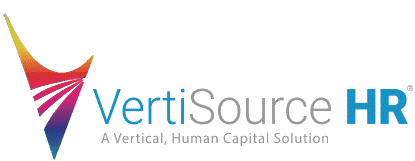Businesses should focus on finding the right candidate for the job from the start to minimize wasteful expenditures. The right hires can do wonders, driving growth, innovation, and productivity; conversely, the wrong hire can be quite the opposite.
What is a Bad Hire?
Just because someone is a bad hire doesn’t mean they’re a bad person; rather, they’re a person who is not the right fit for a role or an organization.
The hiring may not be up to par with the organization’s standards and expectations regarding quality performance. A bad hire is also characterized by poor behavior. Frequently, bad hires lie during the recruitment or hiring process about their knowledge or skills.
Usually, it is obvious if someone is a bad hire. The goal of every recruiter should be to hire the best person for the job—not just filling the position as quickly as possible. Understanding the consequences of a poor hire, red flags, and how they could affect the organization is vital.
The Root Causes of Bad Hires
Rushing the Hiring Process
In the fast-paced world of business, the pressure to fill vacancies quickly can lead to shortcuts in the hiring process. Rushed decisions may result in overlooking red flags or settling for candidates who aren’t the best fit for the role.
Inadequate Screening
Insufficient background checks, vague job descriptions, or poorly conducted interviews can lead to hiring the wrong person. Without thorough evaluation, assessing a candidate’s skills, experience, and cultural fit is challenging.
Ignoring Cultural Fit
Skills and qualifications are essential but only part of the equation. Neglecting to consider how a candidate aligns with the company’s values, mission, and work culture can lead to discord and disengagement later on.
Overlooking Soft Skills
While technical competencies are vital, soft skills like communication, teamwork, and adaptability are equally crucial. Failure to prioritize these qualities can result in friction within teams and hinder collaboration.
Lack of Clarity in Expectations
Misalignment between what the employer expects and what the employee delivers can lead to frustration and disappointment on both sides. Clear communication regarding job responsibilities, goals, and performance metrics is essential for setting the right expectations.
The Effects of Bad Hires
Decreased Productivity
A bad hire can disrupt workflow, decrease team morale, and impede productivity. Co-workers may need to pick up the slack or fix errors, diverting their attention from strategic initiatives.
Increased Turnover
The presence of a toxic or underperforming employee can drive away top talent, leading to increased turnover rates. This churn not only incurs recruitment costs but also affects team cohesion and organizational stability.
Damage to Reputation
Word travels fast in professional circles. A string of bad hires can tarnish a company’s reputation, making it less attractive to prospective employees and clients. Rebuilding trust and credibility can be a long and arduous process.
Financial Implications
The financial ramifications of a bad hire can be significant from recruitment and training expenses to lost productivity and potential legal fees. These costs can escalate quickly, draining resources that could be invested elsewhere.
Cultural Erosion
A single bad hire can disrupt the delicate balance of a company’s culture, leading to negativity and disillusionment. Left unchecked, this erosion can permeate the organization, undermining employee engagement and satisfaction.
Avoid Bad Hires in Your Business
Bad hires are more than just a recruitment misstep; they drain resources, morale, and reputation. Understanding the root causes behind them is the first step toward prevention.
By prioritizing thorough screening, emphasizing cultural fit and soft skills, and fostering clear communication, businesses can mitigate the risks associated with bad hires and cultivate a thriving, high-performing workforce. After all, the strength of a company lies not just in its products or services but in the talent and cohesion of its people.


